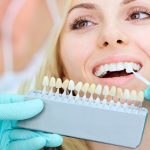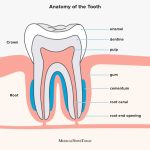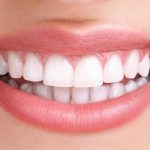Blackened Teeth: Understanding the Causes and Prevention Methods
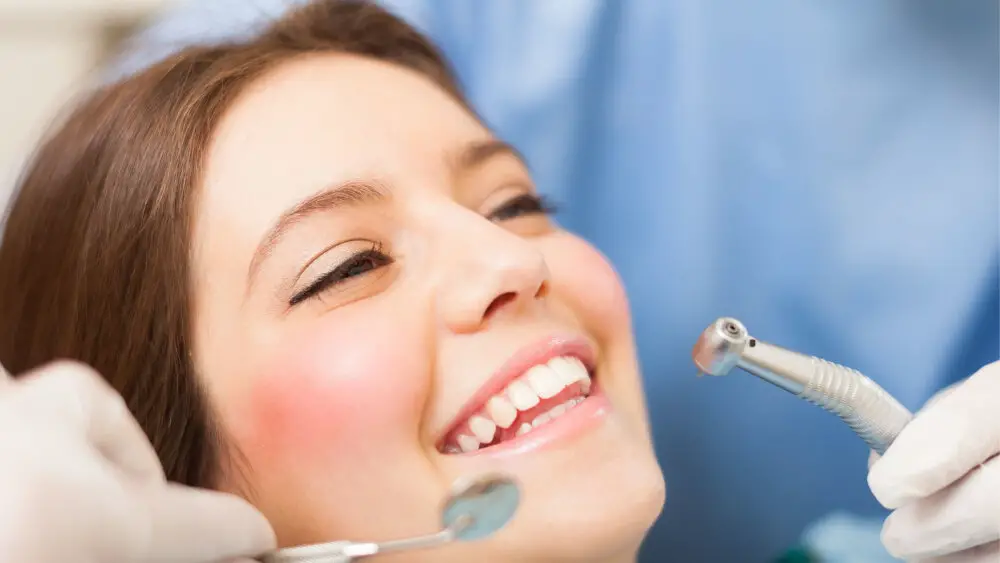
Blackened teeth can be a cause of concern for many people as it can significantly affect their appearance and confidence. The discoloration of teeth can be caused due to various reasons, ranging from poor oral hygiene to consumption of certain foods and beverages. Blackened teeth can also be an indicator of underlying health issues such as gum disease or tooth decay. Thus, it is important to understand the causes and prevention methods of blackened teeth to maintain good oral health and prevent further damage. The discoloration of teeth can be a result of several factors, including smoking, drinking coffee or tea, and consuming foods rich in tannins such as wine and berries. Poor oral hygiene and inadequate brushing and flossing can also lead to the accumulation of plaque and stains on teeth, resulting in blackened teeth. Additionally, certain medications like antihistamines and antibiotics can cause teeth staining as a side effect. Understanding the underlying causes of blackened teeth can help individuals adopt preventive measures and maintain good oral hygiene to keep their teeth healthy and white.
Blackened teeth is a dental condition where the teeth become discolored, turning black or dark brown in color. This condition is caused by the accumulation of plaque, tartar, and other forms of debris on the surface of the teeth, which can lead to tooth decay, gum disease, and other serious dental problems. Blackened teeth can also be caused by certain lifestyle habits such as smoking or excessive consumption of coffee, tea, or other staining substances. Regular dental checkups, proper oral hygiene practices, and avoiding habits that can stain the teeth are some of the most effective ways to prevent the development of blackened teeth and maintain optimal dental health.
Understanding the causes of blackened teeth is essential for preventing this condition. Several factors can contribute to the appearance of blackened teeth, including poor oral hygiene, tobacco use, excessive consumption of dark-colored beverages and foods, and certain medications. By identifying the root cause of blackened teeth, individuals can take preventative measures to avoid future discoloration. Prevention methods may include maintaining proper oral hygiene practices such as brushing and flossing daily, limiting the consumption of dark-colored beverages and foods, avoiding tobacco use, and regularly visiting a dentist for professional cleanings. By prioritizing the importance of understanding the causes and prevention methods of blackened teeth, individuals can maintain a healthy and confident smile.
Causes of blackened teeth
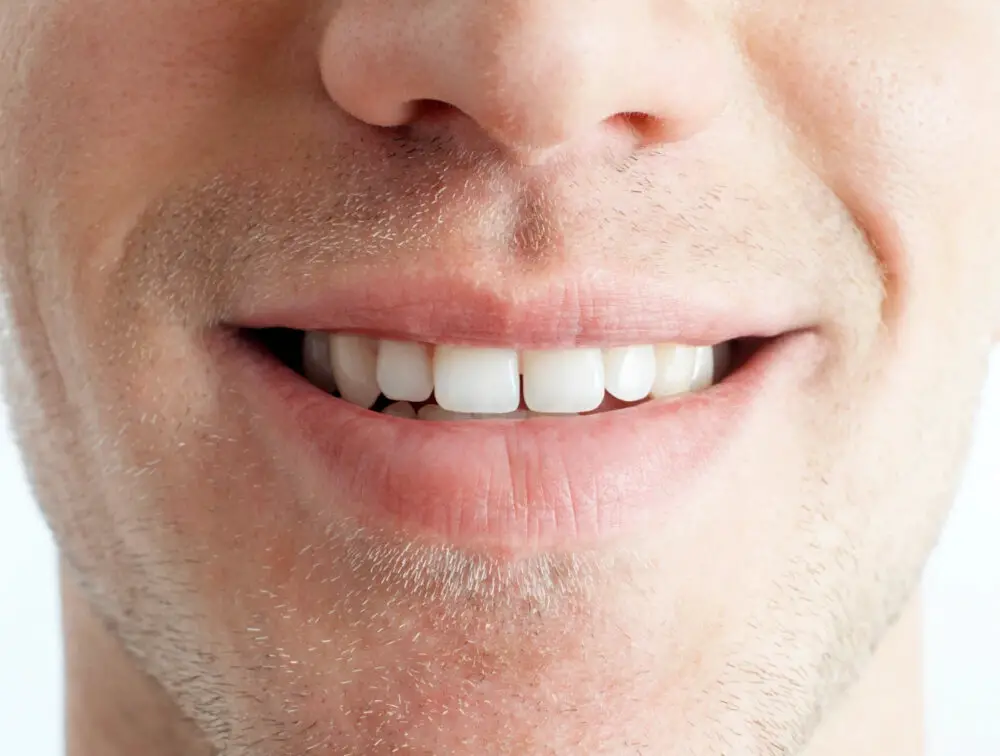
Blackened teeth can be a source of embarrassment for many people and can impact their self-confidence. There are several causes of blackened teeth, including poor dental hygiene, smoking, and consuming certain foods and beverages. Poor dental hygiene, such as not brushing and flossing regularly, can lead to the buildup of plaque and tartar on the teeth, which can cause staining and discoloration. Smoking is another common cause of blackened teeth, as the tar and nicotine in cigarettes can leave behind a yellow or brownish residue on the teeth. Additionally, consuming certain foods and beverages such as coffee, tea, red wine, and cola can cause staining over time. Another cause of blackened teeth is the use of certain medications, such as tetracycline, which can cause permanent discoloration of the teeth, particularly in children whose teeth are still developing. In some cases, blackened teeth can also be a sign of more serious dental issues, such as tooth decay or trauma to the tooth. Therefore, it is important to schedule regular dental checkups to identify and address any underlying dental problems that may be contributing to blackened teeth. By understanding the causes of blackened teeth and taking steps to prevent them, individuals can maintain a bright and healthy smile that they can be proud of.
Poor oral hygiene is a common cause of blackened teeth, which can lead to serious dental problems. Neglecting daily oral care routines such as brushing, flossing, and rinsing can result in the buildup of plaque, a sticky film of bacteria that can harden and become tartar. Tartar buildup can cause staining and discoloration of teeth, making them appear blackened. Poor oral hygiene can also lead to periodontal disease, which results in gum inflammation, receding gums, and eventually tooth loss. Maintaining good oral hygiene practices, such as regular brushing and flossing, can help prevent blackened teeth and maintain overall dental health.
Tobacco use is a major contributor to blackened teeth. Smoking or chewing tobacco can cause the teeth to become discolored and stained, as well as increase the risk of oral diseases such as gum disease and oral cancer. Tobacco contains tar and nicotine, which are harmful substances that can cause tooth discoloration and damage to the enamel. The best way to prevent blackened teeth caused by tobacco use is to quit smoking or chewing tobacco. Regular brushing, flossing, and dental check-ups can also help to maintain good oral hygiene and prevent staining. Additionally, avoiding foods and drinks that stain teeth, such as coffee and red wine, can also help to keep teeth looking white and healthy.
Certain foods and drinks can contribute to blackened teeth, especially those that are high in pigment or acidity. Dark-colored beverages like coffee, tea, and red wine can cause staining over time. Additionally, acidic drinks like soda and sports drinks can erode tooth enamel, making them more susceptible to staining. Foods that are highly pigmented, such as soy sauce, balsamic vinegar, and berries, can also contribute to blackened teeth. While it’s not necessary to completely avoid these foods and drinks, moderation and proper oral hygiene practices can help prevent blackened teeth. It’s important to brush twice a day, floss daily, and visit the dentist regularly for cleanings and check-ups to maintain a healthy, white smile.
Medications can have a significant impact on the health of our teeth. Certain medications can cause dry mouth, which can lead to an increase in bacteria and plaque buildup. This can result in tooth decay and gum disease. Additionally, some medications can cause discoloration of the teeth, such as tetracycline antibiotics which can cause black or brown stains on developing teeth. It is important to discuss any medications you are taking with your dentist to ensure they are not negatively impacting your oral health. Proper oral hygiene habits, such as brushing and flossing regularly and visiting the dentist for routine check-ups, can also help mitigate any negative effects of medication on your teeth.
Blackened teeth can result from a variety of factors, including age-related changes in the teeth and gums. As we age, the protective layer of enamel on our teeth can wear down, making them more vulnerable to discoloration. Additionally, our gums may recede with age, exposing the darker root portion of our teeth. Lifestyle factors such as smoking, drinking coffee or tea, and poor oral hygiene can also contribute to blackened teeth. It’s important to take steps to prevent and treat blackened teeth, such as practicing good oral hygiene, avoiding tobacco and excessive coffee or tea consumption, and seeking professional dental care.
Prevention and treatment of blackened teeth
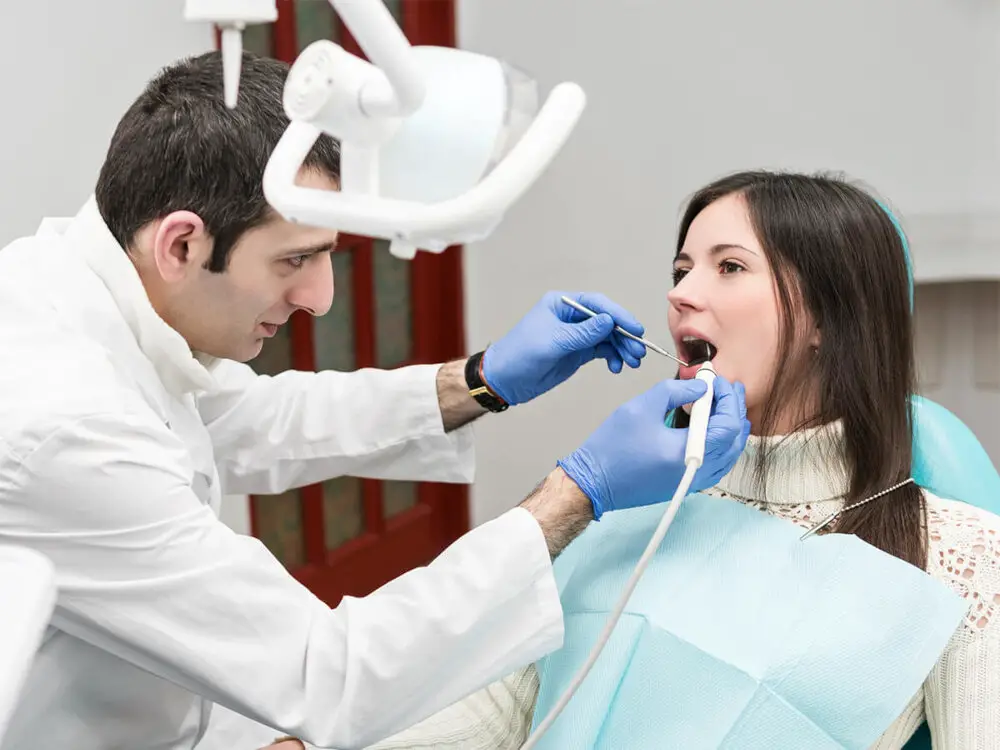
Blackened teeth can be a source of embarrassment and discomfort, but there are several ways to prevent and treat this condition. The most effective prevention method is maintaining good oral hygiene. Brushing twice a day, flossing daily, and visiting a dentist regularly for cleanings can help prevent the buildup of plaque and tartar, which can lead to blackening of the teeth. Additionally, avoiding foods and drinks that can stain teeth, such as coffee, tea, and tobacco, can also help prevent blackening. If you do consume these substances, it is important to rinse your mouth with water afterward and brush your teeth as soon as possible. If your teeth have already become blackened, there are several treatment options available. One common treatment is dental bonding, which involves applying a tooth-colored resin to the affected teeth to cover up the discoloration. Another option is porcelain veneers, which are thin shells that are placed over the teeth to improve their appearance. In more severe cases, teeth whitening procedures, such as bleaching or laser treatments, may be necessary to remove the blackening. It is important to consult with a dentist to determine the best course of treatment for your individual needs.
Brushing and flossing regularly is crucial for maintaining good oral hygiene and preventing blackened teeth. Proper brushing techniques help remove food particles and plaque that can build up on teeth and cause discoloration. Flossing also plays a significant role in preventing blackened teeth as it helps remove debris and bacteria that may be hiding between teeth and hard-to-reach areas. Neglecting to brush and floss regularly can lead to the accumulation of harmful bacteria, which can cause tooth decay and gum disease, ultimately leading to blackened teeth. Therefore, it is essential to make brushing and flossing a part of your daily routine to keep your teeth healthy and avoid any discoloration or other dental problems.
Quitting tobacco use is a challenging task, but it is essential for maintaining good oral health. Tobacco products contain harmful chemicals that can stain your teeth and cause various dental problems such as gum disease, tooth decay, and oral cancer. Nicotine addiction is one of the main reasons why people find it difficult to quit smoking or using other tobacco products. However, there are several ways to quit tobacco use, including nicotine replacement therapy, counseling, and support groups. By quitting tobacco, you can improve your overall health and prevent unsightly blackened teeth and other dental problems. It’s never too late to quit, and there are many resources available to help you succeed.
Avoiding certain foods and drinks can be a crucial step in preventing blackened teeth. Foods and drinks that are high in sugar, such as candy and soda, can contribute to tooth decay and staining. Additionally, dark-colored drinks like coffee, tea, and red wine contain pigments that can easily stick to the teeth and cause discoloration over time. Acidic foods and drinks like citrus fruits and vinegar can also erode the enamel on our teeth, making them more susceptible to staining. By limiting our intake of these foods and drinks, we can help maintain the natural whiteness of our teeth and prevent the need for costly dental treatments in the future.
If you are experiencing discoloration in your teeth due to medication, it is highly recommended to schedule a consultation with a dentist. Discoloration caused by medication can be particularly difficult to remove, as it occurs on the surface of the enamel and may not respond to traditional whitening treatments. A dentist can assess the severity of the discoloration and provide personalized treatment options, which may include dental bonding, veneers, or other cosmetic procedures. Additionally, they can advise on preventative measures and provide guidance on how to maintain optimal oral health while on medication. Don’t let medication-related discoloration affect your confidence and smile – seek the advice of a dental professional today.
Teeth whitening treatments have gained popularity in recent years as people strive to achieve a brighter, more confident smile. There are several options available, including in-office treatments, at-home kits, and natural remedies. In-office treatments typically use a bleaching agent that can whiten teeth up to several shades in just one visit. At-home kits often use a lower concentration of the same bleaching agent and may require several applications over several weeks. Some people opt for natural remedies like oil pulling or activated charcoal, which are believed to remove surface stains. However, it’s important to note that some teeth discoloration may be a result of underlying issues, such as decay or medication use, and may require different treatment options.
Home remedies for blackened teeth
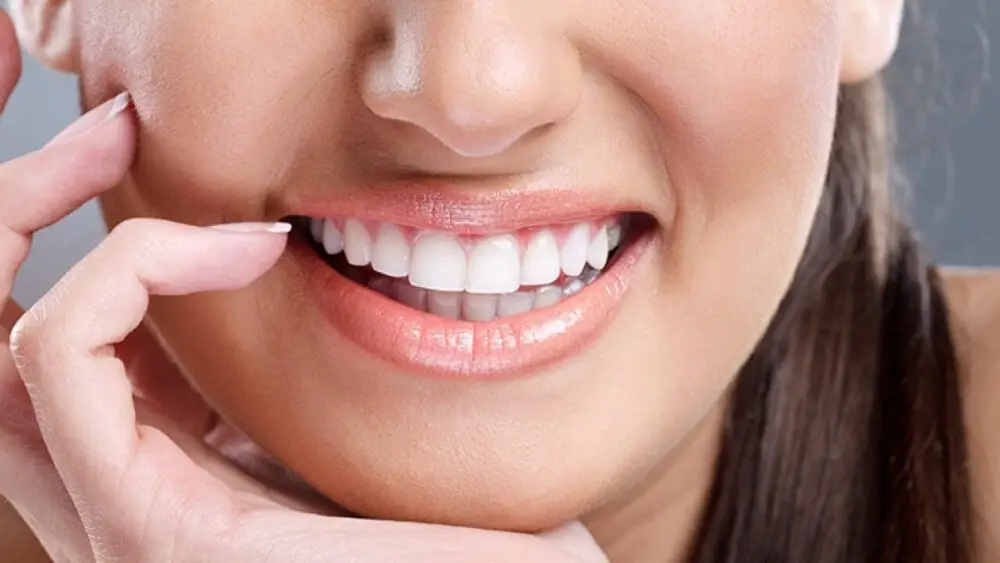
Blackened teeth can be a source of embarrassment and shame for many people. Fortunately, there are several home remedies that can help to improve the appearance of blackened teeth. One of the most effective remedies is to brush your teeth with baking soda and hydrogen peroxide. Baking soda is a natural whitening agent that can help to remove stains from your teeth, while hydrogen peroxide can help to kill bacteria and reduce inflammation. Simply mix baking soda and hydrogen peroxide together to create a paste, then use this paste to brush your teeth for a few minutes each day. Another effective home remedy for blackened teeth is to use apple cider vinegar. Apple cider vinegar is a natural acid that can help to remove stains from your teeth and kill bacteria. To use apple cider vinegar, simply dilute it with water and use it as a mouthwash. Be sure to rinse your mouth thoroughly with water after using apple cider vinegar, as the acid can be harmful to your teeth if left on for too long. With these simple home remedies, you can improve the appearance of your blackened teeth and feel more confident in your smile.
Baking soda and hydrogen peroxide are two of the most commonly used ingredients in teeth whitening remedies. Baking soda, also known as sodium bicarbonate, is a mild abrasive that gently removes surface stains from teeth, while hydrogen peroxide is a bleaching agent that penetrates the enamel to whiten the underlying dentin. When used together, baking soda and hydrogen peroxide can effectively remove black stains from teeth caused by smoking, drinking coffee, or consuming certain foods. However, it is important to use these ingredients in moderation and under the guidance of a dentist, as overuse can lead to enamel erosion and tooth sensitivity. Additionally, it is crucial to address the underlying causes of blackened teeth, such as poor oral hygiene or underlying health conditions, to prevent further discoloration.
Activated charcoal is a fine black powder made from carbon-rich materials such as coconut shells, sawdust, or peat. It is highly porous and has a large surface area, which enables it to adsorb toxins and impurities from the environment. Activated charcoal has been used for centuries as a natural remedy for various health issues, including digestive problems, skin conditions, and even poisoning. However, its use as a teeth whitening agent is controversial. While some people claim that using activated charcoal as a toothpaste or mouthwash can help remove surface stains and improve oral health, others argue that it can damage the enamel and cause long-term harm to the teeth. Therefore, it is essential to consult a dentist before using activated charcoal for any oral hygiene purposes.
Oil pulling is an ancient Ayurvedic practice that involves swishing oil in the mouth for several minutes to improve oral health. The oil used for oil pulling is typically coconut oil or sesame oil. The practice is believed to remove toxins from the mouth and improve overall oral hygiene. Some people also claim that oil pulling can whiten teeth, although there is little scientific evidence to support this claim. While oil pulling is generally considered safe, it is important to note that it should not be used as a substitute for regular brushing and flossing. It is also important to use high-quality oils and to spit out the oil after swishing, as swallowing the oil can lead to gastrointestinal issues.
Blackened teeth can be caused by various factors such as poor oral hygiene, tobacco use, certain medications, and consuming dark-colored foods and beverages. Prevention methods include maintaining good oral hygiene practices, avoiding tobacco and limiting dark-colored foods and beverages. Regular visits to the dentist can also help detect and prevent blackened teeth. In severe cases, professional teeth whitening treatments may be necessary. It is important to understand the causes and prevention methods of blackened teeth to maintain healthy and attractive teeth.
Consulting with a qualified dentist is of utmost importance for proper dental treatment, especially when it comes to blackened teeth. A dentist can diagnose the underlying cause of blackened teeth and provide appropriate treatment options. Ignoring the condition may lead to severe dental issues such as tooth decay, gum disease, and even tooth loss. A dentist can guide the patient on preventive measures such as proper dental hygiene, regular check-ups, and avoiding tobacco products. Additionally, a dentist can also perform professional teeth cleaning procedures to remove stains and discoloration caused by factors such as caffeine, tobacco, and certain medications. In short, consulting with a dentist can help prevent and treat blackened teeth, ensuring good oral health and a confident smile.
Maintaining good oral hygiene is not only essential for keeping your teeth and gums healthy, but it also has a significant impact on your overall health. Poor oral hygiene can lead to a variety of health problems, including heart disease, diabetes, and even certain types of cancer. By brushing and flossing regularly, you can prevent the buildup of harmful bacteria in your mouth, which can cause plaque, cavities, and gum disease. Regular dental checkups and cleanings can also help identify and treat any potential issues before they become more serious. Ultimately, taking care of your oral health can have a positive impact on your overall well-being and quality of life.
Conclusion
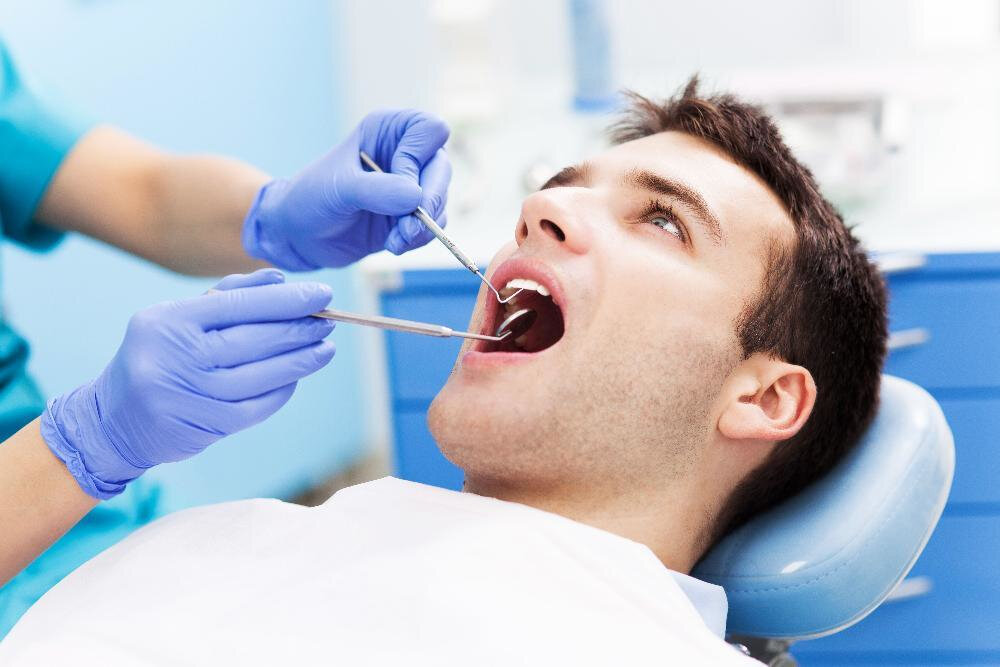
In conclusion, blackened teeth can be a result of various factors such as poor oral hygiene, excessive consumption of staining substances, and certain medical conditions. It is crucial to understand the underlying causes and take preventive measures to maintain good oral health. Regular brushing and flossing can significantly reduce the risk of tooth discoloration, while avoiding or limiting the intake of staining substances like tobacco and coffee can also help. Seeking professional treatment for underlying medical conditions and undergoing teeth whitening procedures can also be effective solutions. With proper care and attention, we can preserve our pearly whites and maintain a healthy, confident smile.


